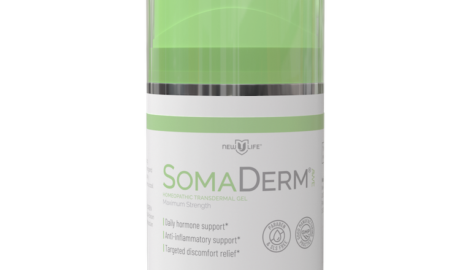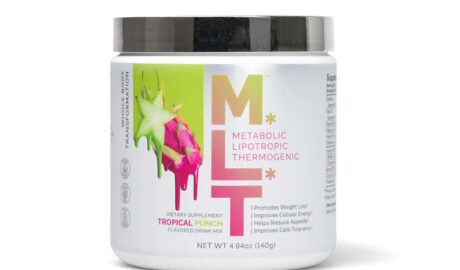Despite being practicing physicians and medical researchers, we’ve spent about as much time over the course of our careers thinking about fluoride as most Americans—very little. That changed with the nomination of Robert F. Kennedy Jr. to oversee the federal government’s medical, public health, and research infrastructure. Kennedy has voiced concerns over fluoridation of the public water supply, calling the practice into question while pointing to research studies about fluoride toxicity.
The sleepy topic of water fluoridation has quickly become a hot-button public-health issue, hopping over a long list of far more pressing health threats. How did we get here?
We’re concerned that our rapidly expanding base of scientific evidence, coupled with increased public access to and familiarity with it, has made it easier to lean on “science” to distract from the important, yet often uncomfortable, discussions about values and tradeoffs that are truly at the core of every political issue.
Let’s take this fluoride example. Fluoride has been added to public water supplies in the U.S. since the mid 20th century, when research made it clear that fluoride in the water could significantly reduce tooth decay, when fluoride is found naturally in water sources or added at treatment facilities. Fluoridating a public water supply provides everyone who drinks it with a cavity-preventing benefit, regardless of their dental hygiene habits or access to dental care. Yet as with any substance—from water to foods and medications—excessive amounts of fluoride can cause problems. This can range from whitish tooth discoloration (a purely aesthetic problem) to negative effects on the brain from prolonged exposure to excessive fluoride levels.
Both advocates and critics of fluoridation lean on their own preferred scientific studies to support their claims. Fluoridation supporters point to research on the clear dental benefits of fluoride and its safety at low levels. And the U.S. Centers for Disease Control and Prevention—which Kennedy is nominated to oversee—currently considers fluoridation “one of the 10 great public health interventions of the 20th century.” However, detractors focus on research suggesting toxic effects of fluoride at high levels, concerned that it may be harmful even at low levels. Kennedy plans to “advise all U.S. water systems to remove fluoride.” Both sides cite various research studies for their contradictory stances.
Read More: Is Intermittent Fasting Good or Bad for You?
When those citing scientific research arrive at completely opposite conclusions, we have to ask: is this debate really about science, or is science being used—consciously or not—to distract from an uncomfortable conversation? At its core, the fluoride debate pits a broad public benefit against a small potential risk and personal autonomy. It’s a lot easier to cite and overinterpret research on toxicity than it is to say, “I don’t think we should have fluoride in the water supply because of the small risks, even if it means cutting off the known dental benefits to the community.” It’s also more comfortable to focus on the number of cavities prevented than it is to say, “I think the population-wide dental benefits outweigh both the small potential risk of toxicity and loss of individual choice in what goes into our drinking water.”
Fluoride in our water may be a health issue. But it’s also a political one.
Science, when properly applied, can and should inform the most challenging decisions that we, as individuals and societies, have to make—whether they’re about a specific drug for a patient to take or a public policy to implement. It can tell us what benefits we might derive from choosing one path and what it would cost—financially or otherwise—to get those benefits.
But science can’t tell us whether tradeoffs are worth making; this is a question of values. A randomized controlled trial tells us what the benefits and side effects of a drug are, but only the patient can tell us if they are willing to tolerate those side effects to get the benefit. Similarly, researchers can estimate how much a new tax credit could impact the bank accounts of American families, but they can’t tell us whether tradeoffs in the form of budget cuts are worth making.
Read More: What to Do if You Have Sleep Apnea
When these values-based decisions are particularly difficult or uncomfortable to face, science can also serve to misdirect the public—intentionally or not—when presented in isolation from the tradeoffs at hand.
Consider COVID-19. During the pandemic’s early stages, it was easier to focus on community infection rates and other epidemiologic assessments than it was to address, head on, the tradeoffs between health benefits for some and long-term educational harms to children brought on by school closures—harms that were not easily measured but reasonable to anticipate. Debate surrounding mask and vaccine mandates drew from scientific studies on their role in COVID-19 transmission, but often glossed over a careful evaluation of the tradeoffs between public health and personal autonomy that were the true core of the issue.
Science, and the quality of it, is often what’s up for debate, when instead debate should center on what we value when choosing one path or another. Rather than to inform what, exactly, the tradeoffs are, science is increasingly misused to justify the values someone holds—a mental sleight of hand to avoid a frank evaluation of what one’s own beliefs are and what costs are worth what benefits. Evading discussion of those tradeoffs and the values that underlie them only makes it harder to move forward and create policy that works for a majority of Americans.
Science tells us, for instance, that alcohol is bad for us: it leads to liver disease, heart attacks, strokes, cancer, accidents, crime, death, and lost economic productivity, among many other problems. Clinging to this science would make for an easy case in support of a total alcohol ban. Yet the reason people haven’t taken to the streets demanding one is because after centuries of grappling with the issue, society has decided that the scientifically measured harms of alcohol do not completely outweigh the more familiar benefits.
Read More: 8 Things You Should Do for Your Bones Every Day, According to Orthopedic Doctors
Science is used appropriately—even if imperfectly—to help us make reasonable tradeoffs when it comes to alcohol in our society, such as by restricting the freedom to consume alcohol before driving or preventing sales to adolescents who are less likely to use it responsibly. Nobody who thinks alcohol should be legal thinks it should be so because the science isn’t conclusive on its harms; rather, with benefits to many, there are simply tradeoffs to be made.
All of this means that when we hear politicians, other leaders, or anybody say that they are “listening to the science,” we have to wonder what part of the discussion they might not be listening to—or might not want to talk about. Truly listening to the science means accepting that science, while helpful, is no substitute for honest human judgment that will reasonably differ among individuals and across time in a diverse and dynamic society. It means we should be prepared to change our minds if new data suggest to us that tradeoffs in potential harms aren’t worth making for the potential benefits.
There are some issues where there’s already broad agreement on tradeoffs worth making. For example, surveys tell us the vast majority of Americans support requiring vaccination against potentially devastating childhood illnesses to attend school. But for most people, fluoride represents a new discussions, and there, good-faith debate involves considering the real benefits of fluoride for dental health, rigorously evaluating any risks of toxicity from excess fluoride, and acknowledging the greater availability of other sources of fluoride in toothpastes, mouthwash, supplements, and varnishes than in the last century. Reasonable minds could arrive at different conclusions, which is why communities in the U.S. and abroad are choosing both to add and to remove fluoride from their public water supplies.
Moving forward, transparent, evidence-based discussions about the tradeoffs at play in public-health decisions—unobscured by distracting, misinterpreted, or nonexistent research that doesn’t actually inform those tradeoffs—might help us make better collective decisions for our health, and could help rebuild the declining trust in public health.






